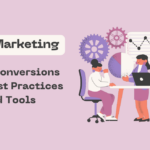
CRO Marketing: Boost Conversions with Best Practices and Tools
September 13, 2024
What is Entity SEO and How is it Different from Traditional SEO?
September 23, 2024How to Get More Traffic with Related Keyword Research?

Driving traffic to your website is crucial; related keyword research can help you target a broader audience. Focusing on related keywords allows you to reach users who may not search for your main keyword but are still interested in what you offer. In this blog, we’ll break down how you can get more traffic by leveraging related keyword research effectively.
1. What is Related Keyword Research?
Related keyword research involves identifying search terms that are similar or connected to your main keyword. These terms can be synonyms, variations, or complementary topics that potential visitors are searching for.
Why is it Important?
- It expands your reach beyond your primary keywords.
- It improves your website’s visibility in different search queries.
- It targets a more diverse audience, increasing overall traffic.
2. How to Identify Related Keywords
Identifying related keywords is the first step in this process. Here are some easy-to-follow methods:
- Google’s Related Search: At the bottom of Google search results, you’ll find keywords related to your search. Use these to generate ideas.
- Use Keyword Research Tools: Tools like Ubersuggest, SEMrush, and Ahrefs provide a list of related keywords to your primary term.
- Analyze Competitors: See what keywords your competitors are ranking for. This can give you additional insights into related keywords.
3. Optimize Content with Related Keywords
Once you have a list of related keywords, optimizing your content with them will help you capture more search traffic.
- Naturally Include Keywords: Don’t force related keywords into your content. Instead, weave them naturally throughout your blog, headings, and meta descriptions.
- Use LSI Keywords: Latent Semantic Indexing (LSI) keywords are terms that search engines consider semantically related. Using these can improve relevance.
- Write Longer Content: Longer articles often perform better because they naturally include more related terms and answer more questions users might have.
4. Use Topic Clusters
Organizing your content into topic clusters can improve your website’s structure and make it easier for Google to understand your expertise. Here’s how it works:
- Main Topic (Pillar): Your central blog topic, such as “SEO Tips.”
- Related Subtopics (Clusters): Surrounding articles about related keywords like “On-page SEO” or “Technical SEO.”
By linking these related articles, you create a more authoritative structure, and Google rewards this with higher rankings.
5. Leverage Long-Tail Keywords
Long-tail keywords are phrases with 3 or more words and are often more specific. They may have lower search volumes, but they also tend to have lower competition, making it easier for you to rank.
- Example: Instead of “SEO tips,” target “SEO tips for small businesses.”
- Why It Works: Long-tail keywords target users who are further along in their decision-making process, meaning they’re more likely to convert.
6. Create Content Around User Intent
Understanding user intent is key to selecting the right related keywords. When creating content, think about:
- Informational Keywords: People looking for information (e.g., “how to do keyword research”).
- Commercial Keywords: People considering a purchase (e.g., “best SEO tools”).
- Transactional Keywords: People ready to make a purchase (e.g., “buy SEO tools”).
Tailor your content to match these intents, and you’ll see more relevant traffic.
7. Include Related Keywords in Meta Tags
Meta tags, including the title and description, help search engines understand what your content is about. Including related keywords in these tags can make your content more discoverable.
- Title Tags: Ensure that your main keyword and at least one related keyword appear in the title.
- Meta Descriptions: Summarize the content while including related terms to increase click-through rates (CTR).
8. Use Keyword Variations in Headers
Search engines pay attention to headers (H1, H2, H3, etc.). By including variations of related keywords in these headers, you improve your page’s SEO value.
- Example: Use H2s like “Best Practices for Keyword Research” and “Advanced Keyword Research Tips.”
9. Build Internal Links with Related Keywords
Internal linking is an important SEO practice. Use related keywords in your anchor text when linking to other pages on your site. This helps:
- Improve Site Navigation: Guides users to relevant content.
- Boost SEO: Search engines see internal links as a sign of authority and context.
10. Monitor and Adjust Regularly
SEO isn’t a one-and-done strategy. Regularly monitor your traffic and keyword rankings to identify what’s working and what’s not.
- Google Analytics: Check which keywords are driving the most traffic.
- SEO Tools: Use Ahrefs or SEMrush to monitor your rankings and find new related keyword opportunities.
11. Utilize Content Gaps
Content gaps are topics your competitors cover but you haven’t. Finding these gaps through related keyword research will help you develop content that addresses untapped user queries.
- Tool for Content Gaps: Use Ahrefs’ Content Gap tool or similar resources.
12. Create Visual Content with Related Keywords
Not all keyword optimization should be text-based. Images, infographics, and videos can also be optimized with related keywords.
- Alt Text: Include related keywords in the alt text for images.
- File Names: Use relevant keywords in your image file names to help with SEO.
13. Don’t Overstuff Keywords
Keyword stuffing refers to overloading your content with keywords in an unnatural way. Google can penalize your site for this, so always focus on natural keyword integration.
- Keep It Natural: Aim for readability and a smooth flow.
14. Use Synonyms and Contextual Terms
Related keywords don’t have to be exact matches. Synonyms and contextual words help Google understand your content’s relevance.
- Example: If your main keyword is “SEO strategies,” include terms like “search engine optimization techniques” or “online marketing tips.”
15. Measure Your Success
Finally, measure your efforts to see if related keyword research is bringing more traffic.
- Track Your Traffic: Use Google Analytics to track organic traffic growth.
- Rankings: Keep an eye on your keyword rankings for both primary and related keywords.
Conclusion
Related keyword research is a powerful tool for driving more traffic to your site. Expanding your keyword strategy beyond your primary search terms, optimizing your content, and understanding user intent can attract a broader and more engaged audience.
FAQs
1. What are related keywords in SEO?
Related keywords are phrases that are closely connected to your main keyword, often used to reach a wider audience by targeting variations of search queries.
2. How can related keywords improve my SEO?
By including related keywords, you can increase the relevance of your content for different search queries, improving your ranking and visibility in search results.
3. What tools can I use for related keyword research?
Popular tools include Google’s Related Searches, Ahrefs, SEMrush, Ubersuggest, and Google Keyword Planner.
4. How do I integrate related keywords into my content?
You can naturally include them in your blog, headings, meta tags, and alt text. Use variations and synonyms to avoid keyword stuffing.
5. Can long-tail keywords really boost traffic?
Yes, long-tail keywords often have less competition and can attract more targeted, high-intent traffic, making them valuable for SEO.



